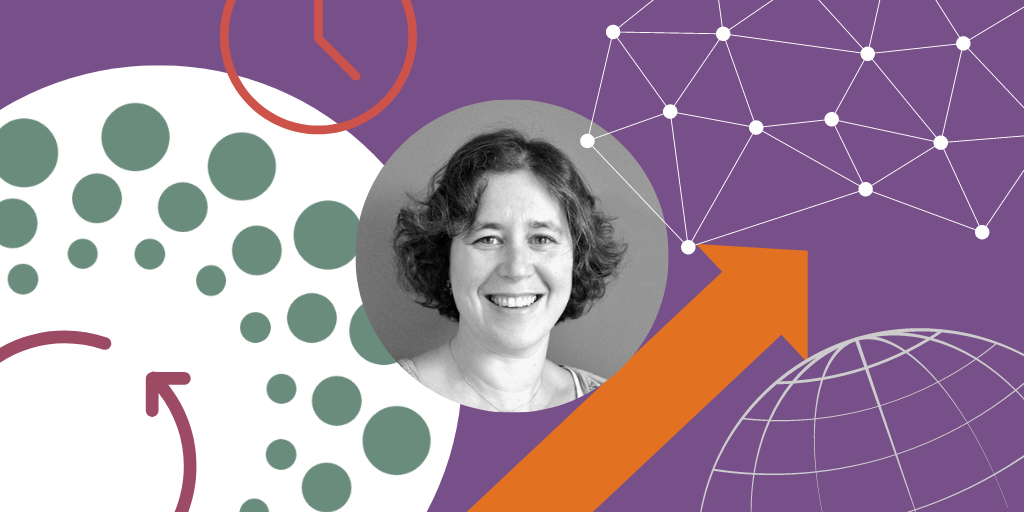
By Kate Newman
Three months ago, I joined INTRAC. I was excited and slightly nervous. I was excited because INTRAC is an organisation I had admired for many years. I used its early materials during my PhD research, commissioned its consultants to undertake a cross-organisational impact study using innovative methodologies, and collaborated as part of a wider network of actors who were rethinking research collaborations. I was highly motivated by INTRACs mission to contribute to and strengthen civil society and was looking forward to collaborating with staff and the network to work through what this might look like going forward. But I was also a bit nervous: could bring my values and approach into a Chief Executive role, and model feminist, collaborative leadership; and would I find good answers to my question: how can INTRAC build on its 30 years of experience and contribution, while also shifting the power and clarifying its role into the future?
The last three months have been a steep learning curve and a time of engaging with a variety of interesting people: staff, previous and current; network consultants in the global North and global South; the board, clients and a range of other actors working in different ways to support civil society organisations to do what they want to do, better.
So, what I have heard?
Firstly, that the things I thought about INTRAC before I joined are being confirmed. Our clients mention the quality of our work and our reliability. Staff, network members and the board highlight different aspects that make INTRAC a special place to work. They mention our values, level of knowledge, experience, and ways of working. Together, these mean that we are more than just a values-driven consultancy. Our offer – of advisory services, training, and research – helps INTRAC identify the key trends that the sector is experiencing. It enables us to convene spaces for debate and learning, to develop capacity initiatives and to generate new knowledge and ways of thinking focused on enabling resilient, inclusive, and impactful civil society action.
Secondly, I have heard that things have changed and continue to change. Responses to the COVID pandemic only accelerated change that was already underway for INTRAC. – for example, moving away from face-to-face training and continuing to build upon our experience in online learning; and working with our network of consultants in the global South to deliver consultancy: reducing our carbon footprint and centring the analysis and perspectives of experts in different contexts. Staff are reflecting on INTRAC’s response to calls to decolonise and shift power, and recognising the opportunities presented by closing our office in Oxford and becoming ‘remote first’: enabling us to become a more geographically dispersed organisation.
And what have I learned?
Although INTRAC is going through a period of transition and change, we also are clear that our core purpose remains the same: we are unashamedly for civil society. We are committed to collaborating with, and influencing, others to strengthen civil society. This means that our consultancy work is in service to our mission – it provides the experience, insights, learning and financing for us to have a bigger strategic impact. But beyond this there are three core elements we are paying attention to, in order to implement our theory of change; shift our power, and contribute to creating new power through our engagement in decolonising the sector.
- Investing in the INTRAC network: we are a small organisation with a network of over 120 consultants located across the globe. These individuals bring a diversity of knowledge, perspectives, and experiences into their consultancy practice. Consultants and partners rooted in the global south are central to our future. We will work together to brin the best of global and local to enable effective, impactful, resilient, diverse, and inclusive civil society. This could include reimaging our relationships alongside the UK anti-poverty sector.
- Allying and using our power and privilege to challenge and disrupt inequity in the global development system: Like many other UK based development actors we are acutely aware of our power and privilege, accumulated because of who we are and our 30 years of operation. We have relationships with powerful actors, deep knowledge, and wide-ranging experience across the sector. We can draw on this to ally with civil society in the global South, and together ask difficult questions, convene disruptive and constructive spaces, and identify different types of support and fundraising that enable strong and sustainable civil society.
- Revitalising our work in the space of research and learning on the sector: our relationships and activities lead us to actively contribute to debates on the future of civil society and respond to pressing challenges facing civil society organisational working nationally and globally today. Our engagements enable us to build knowledge on the diversity of civil society development strategies, We can use this to encourage others to reflect on their practice, and shift their approaches.
And what am I feeling now?
Three months in then, I have a lot to think about, I have some answers, and more questions. The excitement is still there: I know that INTRAC has a valid and valuable contribution to make going forward and that our diverse knowledges and networks to enable us to do this. But the nervousness also remains. We will need to be learning as we go. This will include reflecting on and responding to our own organisational culture, including how we can become actively anti-racist in our practice. It will mean learning about the way we play our role, the spaces we create and the atmosphere we enable within them. We will continue to ask how an organisation like ours can act in solidarity, what it means to be adaptable and how to ensure that our actions reflect our commitment to locally led development. We will learn about our role in creating new and different types of power, in disrupting the sector, and decolonising our practice.